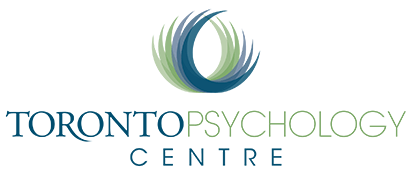
Psychoeducational Assessment for ADHD
Gain Clarity and Direction
Toronto Psychology Centre offers psychoeducational assessments to identify Attention Deficit/Hyperactivity Disorder (ADHD) in children, adolescents, and adults. ADHD is a complex disorder that affects many areas of functioning and can manifest differently across individuals. The different types of symptoms associated with ADHD highlight the need for an accurate diagnosis, targeted recommendations and accommodations, as well as evidence-based treatment.
Individuals seeking a referral at Toronto Psychology Centre often want diagnostic clarification, information for an Individual Education Plan (IEP) used at the elementary and secondary school level, or accommodations for young adults beginning college and university. Other adults requesting an assessment for ADHD want to clarify areas of strengths and challenges that may be affecting their work.
A comprehensive psychoeducational assessment can help you make sense of a complicated presentation of symptoms, and/or formally document what you may have already informally known for years. Our highly trained psychologists are committed to helping you gain a clear picture of your symptoms, identifying whether you have ADHD, and providing you targeted treatment strategies to improve your life.
- What is ADHD?
- Diagnosing ADHD
- What to expect from testing for ADHD
- Accommodations for ADHD
- Treatment for ADHD
What is ADHD?
Attention-Deficit/Hyperactivity Disorder (ADHD) is a neurodevelopmental disorder that can involve difficulties with attention, concentration, organization, hyperactivity, impulsivity, or any combination of these. Some individuals with ADHD primarily experience challenges with attention and concentration, while others with ADHD primarily have difficulties with hyperactivity or impulsivity, and still others diagnosed with ADHD experience challenges in all of these areas. Although ADHD is often first diagnosed in childhood, it is not unheard of to receive an initial diagnosis of ADHD as an adult. Sometimes the referral question stems from parents or school personnel who are concerned over their child’s difficulty sitting still or concentrating in the classroom, whereas other times the referral question stems from an adolescent or adult concerned with their own ability to focus and meet the demands of their school or work life. Regardless of how ADHD manifests for a certain individual, the symptoms themselves can be difficult and sometimes feel impossible to change when you don’t know what exactly is going on or how to manage them.
Diagnosing ADHD
The symptoms of ADHD may sometimes appear to be straightforward to detect, but these symptoms may also be difficult to decipher from other challenges or diagnoses. For example, the symptoms of inattention or a lack of focus in the classroom may be indicative of Inattentive-Type ADHD and/or giftedness. The symptoms of distractibility or hyperactivity may be indicative of Hyperactive-Type ADHD and/or certain mood disorders. Another complicating factor in formulating a diagnosis of ADHD is that the associated symptoms of inattention, distractibility, and hyperactivity may be exacerbated by certain life stressors. Additionally, ADHD can, but not always, co-occur with other diagnostic conditions such as Learning Disabilities, Anxiety Disorders, and certain addictions.
What to expect from testing for ADHD
In order to make a definitive diagnosis of ADHD and rule out other conditions that cause similar difficulties, we conduct a comprehensive assessment tailored to each client’s needs. Depending on the reason for the referral and the specific difficulties experienced, the assessment may include a structured background interview, standardized measures assessing attention, impulsivity, and organization, standardized measures to help rule out a Learning Disability or other learning challenges, and standardized measures examining social, emotional, behavioural and psychological symptoms to differentiate between ADHD symptoms and those common to other disorders.
A psychoeducational assessment can help set academic expectations according to an individual’s strengths and challenges. It can also identify strategies, tools and resources to maximize learning, and determine the most effective academic environment for an individual’s learning style.
Accommodations for ADHD
Children, adolescents and young adults with ADHD can receive accommodations to support their learning needs. Accommodations for students with ADHD may target in-class learning, organization, problems with distractibility, classwork, test-taking, and behavioural strategies. Students attending college or university can benefit from accommodations to support their educational goals and help manage the changes and increased academic expectations at the post-secondary level.
Treatment for ADHD
We offer therapy for ADHD to transitional aged youth (i.e., 16 plus) and adults. ADHD is not just a childhood problem. It is not laziness or willfulness. It is a neurodevelopmental disorder marked by differences in brain activity and function compared to others who don’t have it.
Adults with ADHD often struggle with executive functioning skills such as planning, organization, and time management. Many people with ADHD also have problems regulating emotions and may display anger, impatience, self-doubt, and difficulty managing stress.
We strive hard to help you address your symptoms and build your confidence through the implementation of evidence-based skills. The best treatment strategies are combinations of several different complementary approaches that work together to reduce symptoms. Many individuals who experience ADHD symptoms feel misunderstood and blame themselves for struggling with follow through. With treatment and the right support, people with ADHD can be highly successful and feel more in control of their lives.
Please contact us to find out more about Psychoeducational Assessment for ADHD.
